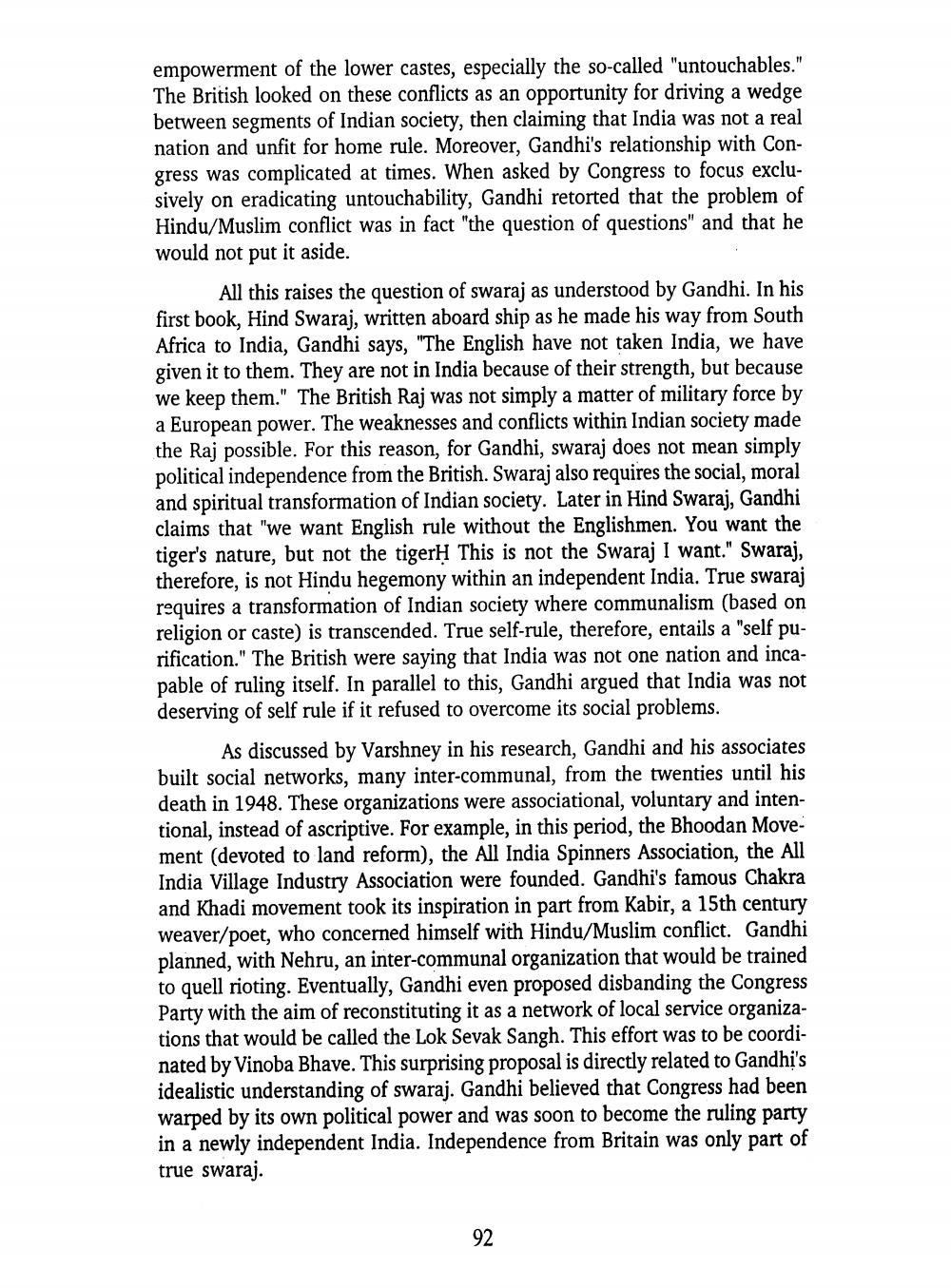________________
empowerment of the lower castes, especially the so-called "untouchables." The British looked on these conflicts as an opportunity for driving a wedge between segments of Indian society, then claiming that India was not a real nation and unfit for home rule. Moreover, Gandhi's relationship with Congress was complicated at times. When asked by Congress to focus exclusively on eradicating untouchability, Gandhi retorted that the problem of Hindu/Muslim conflict was in fact "the question of questions" and that he would not put it aside.
All this raises the question of swaraj as understood by Gandhi. In his first book, Hind Swaraj, written aboard ship as he made his way from South Africa to India, Gandhi says, "The English have not taken India, we have given it to them. They are not in India because of their strength, but because we keep them." The British Raj was not simply a matter of military force by a European power. The weaknesses and conflicts within Indian society made the Raj possible. For this reason, for Gandhi, swaraj does not mean simply political independence from the British. Swaraj also requires the social, moral and spiritual transformation of Indian society. Later in Hind Swaraj, Gandhi claims that "we want English rule without the Englishmen. You want the tiger's nature, but not the tigerH This is not the Swaraj I want." Swaraj, therefore, is not Hindu hegemony within an independent India. True swaraj requires a transformation of Indian society where communalism (based on religion or caste) is transcended. True self-rule, therefore, entails a "self purification." The British were saying that India was not one nation and incapable of ruling itself. In parallel to this, Gandhi argued that India was not deserving of self rule if it refused to overcome its social problems.
As discussed by Varshney in his research, Gandhi and his associates built social networks, many inter-communal, from the twenties until his death in 1948. These organizations were associational, voluntary and intentional, instead of ascriptive. For example, in this period, the Bhoodan Movement (devoted to land reform), the All India Spinners Association, the All India Village Industry Association were founded. Gandhi's famous Chakra and Khadi movement took its inspiration in part from Kabir, a 15th century weaver/poet, who concerned himself with Hindu/Muslim conflict. Gandhi planned, with Nehru, an inter-communal organization that would be trained to quell rioting. Eventually, Gandhi even proposed disbanding the Congress Party with the aim of reconstituting it as a network of local service organizations that would be called the Lok Sevak Sangh. This effort was to be coordinated by Vinoba Bhave. This surprising proposal is directly related to Gandhi's idealistic understanding of swaraj. Gandhi believed that Congress had been warped by its own political power and was soon to become the ruling party in a newly independent India. Independence from Britain was only part of true swaraj.




